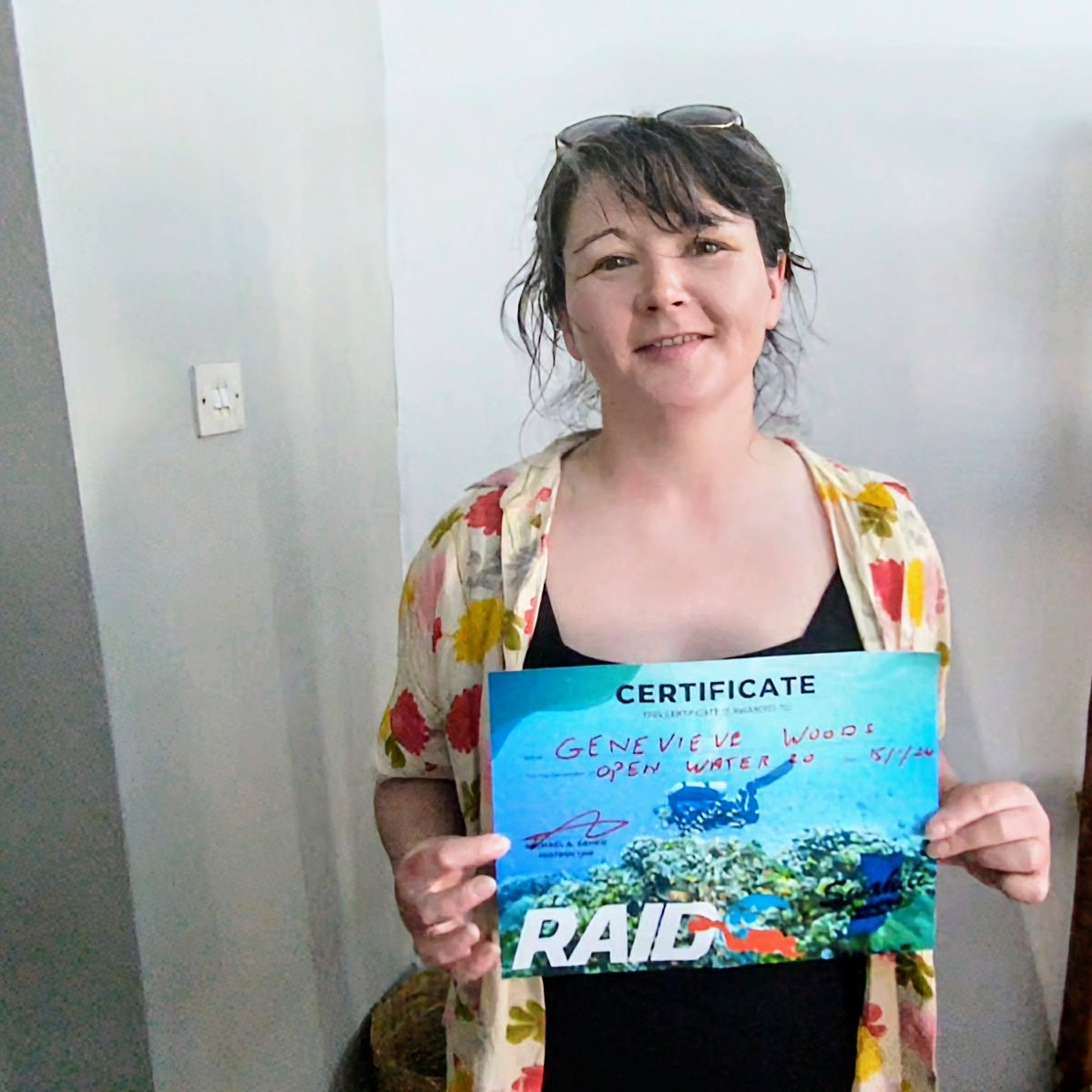How Much Does It Cost To Get Scuba Certified? Detailed Breakdown
How much does scuba certification cost typically? Generally, expect to pay anywhere from $300 to $1000 for your initial Open Water Diver certification.
At East Africa’s leading dive center, Swahili Divers, we may charge up to $500 to get you scuba certified. You will be using first-class equipment in a third-world country, trained by your personal instructor — expert divers with decades of experience.
But… there are nuances to the cost of a scuba certification that you should be aware of, so you do not get ripped off.
This guide will break down the exact costs involved in getting scuba certified, so you can make an informed decision and avoid getting ripped off.
This information is priceless if you’re looking to get scuba certified this year!
Key Takeaways.
Scuba certification cost varies widely. Expect to pay anywhere from $300 to $1000, depending on factors like location, course level, and dive shop quality.
Don't just chase the cheapest option. A quality course prioritizes safety, good equipment, and knowledgeable instructors – worth the investment.
Tropical destinations often bring higher costs. Dive shops in stunning locations have higher overheads but also provide access to incredible dive sites.
Swahili Divers offers transparent pricing (up to $500). This includes top-notch equipment, expert instructors, and the beauty of Pemba Island.
How to Get Scuba Certified
Before we delve into the price tag, understanding what SCUBA is and what a dive certification entails is key. Here's a typical course breakdown:
Classroom Sessions:
This is where you'll learn the science behind diving, safety procedures, and how to avoid becoming an unintended resident of an anemone.
Some dive shops offer online courses, while others have traditional classroom settings.
Pool Sessions:
Time to put theory into practice! In a safe, controlled environment like a pool, you'll get comfortable with your gear, master skills like mask clearing, and perfect your "giant stride entry" (it's cooler than it sounds).
Open Water Dives:
The real fun begins! You'll head out to open water, under the watchful eye of your instructor, and finally come face-to-face with the world's most incredible marine life.
How Much Does A Scuba Certification Cost
Let's face it, getting scuba certified isn't exactly a budget vacation. But the chance to breathe underwater and explore a whole new world? Priceless!
So, how much does scuba certification typically cost? Generally, expect to pay anywhere from $300 to $1000 for your initial Open Water Diver certification.
This broad range reflects the various factors mentioned earlier. Do your research, inquire about what's included in the course price, and don't be afraid to ask questions.
Don't simply chase the cheapest option – investing in a quality course will ensure a safe and enjoyable introduction to the incredible world of scuba diving.
Scuba Certification Cost Factors
Now, onto the burning question: how much does it really cost? Several factors influence the price:
Location:
Learning to dive in a tropical paradise like Pemba Island (where I run my dive shop!) will likely cost more than a local dive shop.
The higher overheads of operating in stunning locations are reflected in the course price. However, you'll be rewarded with pristine dive sites and top-notch equipment.
If you're dreaming of incredible dive sites in East Africa, check out the scuba diving options in Zanzibar and Pemba.
Course Level:
There are multiple dive certification levels one can go for, depending on expertise.
The basic Open Water Diver certification is your diving foundation. More advanced courses like Advanced Diver or Divemaster naturally come with a higher price tag.
Different types of diving or dive levels will require different certifications
Think of it like a driver's license – more experience usually translates to a steeper cost.
Shop Reputation and Quality:
Beware of suspiciously cheap courses. While you might technically get certified, skimping on quality can compromise safety and enjoyment.
Look for a reputable dive shop with experienced instructors and well-maintained equipment. Sometimes, a higher upfront cost ensures a safer and more rewarding experience.
Avoiding the Cheap Trap
I've seen dive courses advertised for next to nothing. Here's the reality: you often get what you pay for. Sure, you might walk away with a certification card, but will the training be thorough?
Will the equipment function flawlessly underwater? Will your instructor be a reliable guide?
Remember, scuba diving involves some inherent risks. Investing in a quality course can significantly reduce the risks or dangers of scuba diving.
How Long Does It Take to Get Scuba Certified?
The typical Open Water Diver certification course takes about 3-4 days to complete.
The duration of the scuba certification course can vary depending on the dive shop, your learning pace, and the number of students in the group.
Some intensive programs may condense the course into a shorter timeframe. However, spreading out your learning is often recommended for better knowledge retention and a less rushed experience.
Get the most out of your scuba training with these 23 scuba diving tips.
This includes:
Theory Sessions: Expect to spend some time either in a classroom or with e-learning materials.
Pool (or Confined Water) Training: A safe environment to practice your scuba skills before venturing into open water.
Open Water Dives: Usually four dives over at least two days, where you'll put everything into practice under the guidance of your instructor.
So, if you're eager to explore the underwater world, be prepared to invest around 3 to 4 days to become a certified scuba diver.
Ready to embark on your underwater adventure? Discover our scuba diving courses.
Is Scuba Certification Worth It?
Absolutely! Scuba diving opens doors to experiences most people only dream about.
You’d see divers effortlessly alongside graceful sharks, exploring sunken shipwrecks, or witnessing the unbelievable beauty of a coral reef. It's an investment in a whole new world of adventure.
How Old Do You Have to Be to Get Scuba Certified?
How young do you have to be to scuba dive? The answer is 10. The Professional Association of Diving Instructors (PADI) states that if you’re 10 years old, you can get your Junior Open Water scuba diving certification.
Junior Open Water Diver: If you're at least 10 years old, this certification opens the door to underwater adventures (with some depth limitations and adult supervision requirements).
Open Water Diver: The standard certification requires you to be at least 15 years old.
Where to Get Scuba Certified
Your certification journey can take you anywhere in the world! Here's how to decide where to get certified:
Tropical Paradises: Dive shops in destinations like the Maldives, the Caribbean, or my home base, Pemba Island, offer picture-perfect, less-crowded dive sites but may have higher overall costs.
Local Dive Shops: These often provide more budget-friendly options. You might not have those postcard-worthy reefs but will still learn the essential skills and get that certification.
Explore budget-friendly African dive vacation options, including Zanzibar and Pemba Island.
Online Theory Options: Many dive shops allow you to complete the theory part through online learning modules. This saves time at your chosen location, leaving more time for diving!
PADI Lookup Certification and PADI Levels of Certification
Where do you begin your dive certification journey? Almost every diver today starts with the basic PADI certification. You should too.
PADI (Professional Association of Diving Instructors):
The world's most recognized scuba diving certification agency. If you're wondering where to begin, PADI is a great starting point.
PADI Lookup Certification:
Once you're certified, you can verify your certification status through the PADI website – a handy tool to show potential dive operators.
PADI Levels of Certification:
PADI offers a progression system. After your Open Water Diver certification, you can pursue specialties like Deep Diver, Wreck Diver, or even the prestigious Divemaster rating.
Does Your Scuba Certification Expire?
Quick question, How long would your scuba diving certification last?
Technically, your scuba certification itself doesn't expire. However, if you have yet to dive for a significant period (usually about six months or more), a refresher course is strongly recommended.
Dive shops want to see that you remember those critical safety skills!
Do You Need a License to Scuba Dive and What's the Cost?
Yes! Your scuba certification card is essentially your "license" to dive. You'll need to show it to dive shops before booking dives around the world.
The cost of your certification varies – remember the factors we discussed, like location and the reputation of the dive shop.
The Investment in a Lifetime: Transparent Pricing at Swahili Divers
While scuba certification isn't the cheapest experience, the memories and unique experiences you gain will last a lifetime.
Why choose Swahili Divers, East Africa's leading dive center
Here at Swahili Divers, the oldest and safest dive center in East Africa, we believe in transparent pricing and exceptional standards.
Our Open Water Diver courses range up to $500 and include everything you need to become a certified diver:
Top-notch Equipment: We prioritize safety and performance with regularly serviced, high-quality gear. Enjoy the peace of mind that comes with modern, reliable equipment in our third-world paradise, exploring Pemba Island's underwater wonders.
Expert Instructors: Our instructors are seasoned professionals who will guide you confidently through every step of your certification journey.
Small Class Sizes: Personalized attention is key, which is why we maintain low student-to-instructor ratios.
Unforgettable Dives: Pemba Island boasts some of the most stunning dive sites in East Africa, teeming with diverse marine life.
Nitrox Diving Options: As the only accredited dive center north of South Africa to offer Nitrox, experience the benefits of extended bottom time and shorter surface intervals.
Safety First: We're proud of our 10-year record of zero dive incidents, a testament to our dedication to your safety and enjoyment.

"I came to Pemba to see the coral. It was beautiful, in good condition, and full of fish and nudibranchs. The diving staff of Swahili divers are all excellent. Equipment was all included and was spot-on. My partner completed her Open Water certification in a few days and we were both totally satisfied."
Evo S.
Ready to trade in your land legs for flippers? Contact Swahili Divers today to discuss your scuba certification options and embark on an adventure unlike any other!
We can't wait to welcome you to the underwater world and share the wonders of Pemba Island.

"I came to Pemba to see the coral. It was beautiful, in good condition, and full of fish and nudibranchs. The diving staff of Swahili divers are all excellent. Equipment was all included and was spot-on. My partner completed her Open Water certification in a few days and we were both totally satisfied."
Evo S.

"We enjoyed some wonderful dives with Swahili Divers during our holidays in Pemba this July/August. Mike and the team are very professional, and always ready to support and find solutions. The dive sites are very diverse and can be used for junior open water divers up to very experienced ones. That means shallow water to super nice wall dives. Thanks for the wonderful time with you!! "
Regards, Nicole & Patrick and the 3 kids;-)



